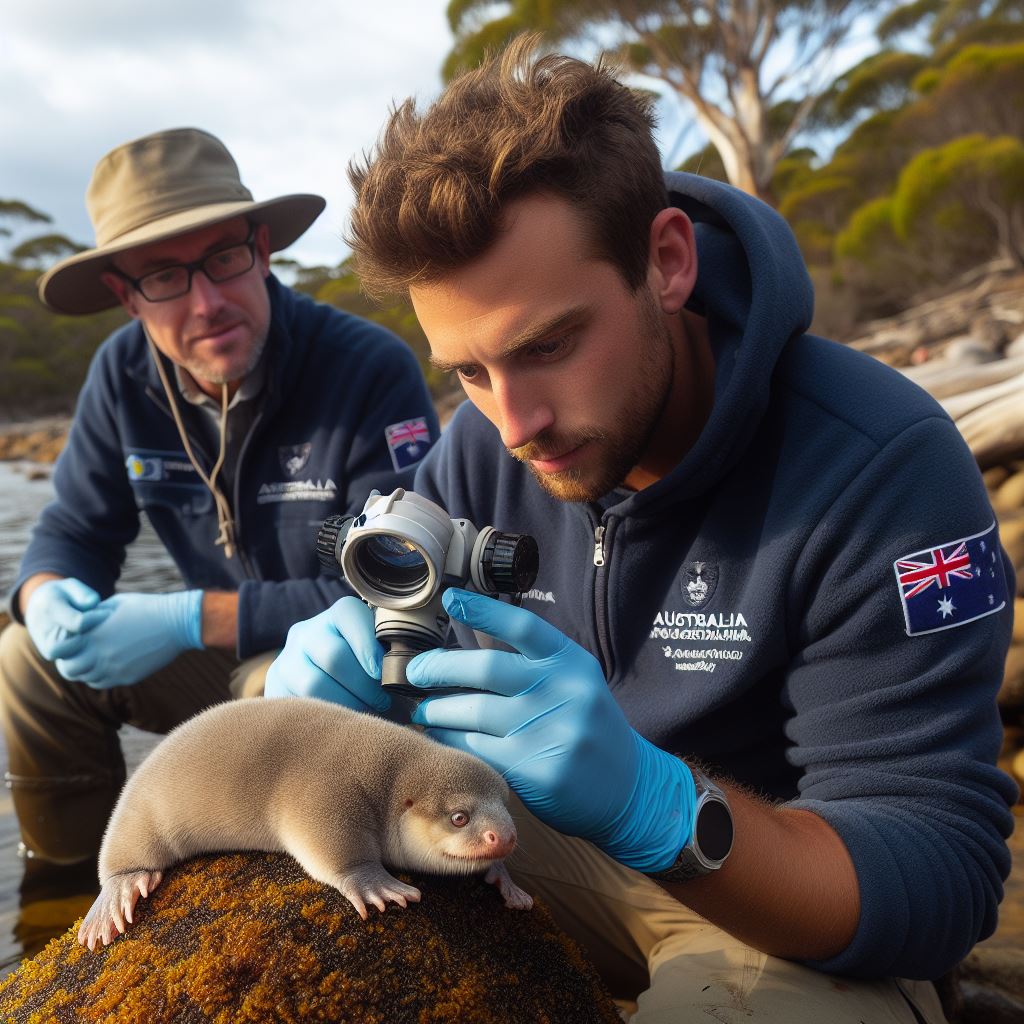Introduction
In the realm of biological sciences, the decision between pursuing a Master’s or a PhD holds significant implications for aspiring researchers and professionals.
This discussion, framed within an Australian context, seeks to navigate the nuances of this pivotal choice, recognizing the profound impact it can have on one’s academic and professional trajectory.
Within the dynamic landscape of Australian academia, the choice between a Master’s and a PhD in Biology is not merely a matter of academic pursuit; it is a strategic decision with far-reaching consequences.
The pathway chosen can shape the depth of expertise attained, the opportunities for career advancement, and the trajectory of contributions to the field of biology.
As we embark on this exploration, it becomes evident that the importance of selecting the right degree program cannot be overstated.
Each pathway offers unique advantages and challenges, necessitating careful consideration of individual goals, aspirations, and resources.
Whether aiming for specialized knowledge and skill acquisition through a Master’s program or aspiring to delve into cutting-edge research and academic leadership with a PhD, the decision holds the power to shape one’s academic and professional journey profoundly.
In the context of the vibrant academic landscape in Australia, where research excellence and innovation thrive, the choice between a Master’s and a PhD assumes even greater significance.
It is a decision that not only reflects individual aspirations but also aligns with the broader objectives of advancing scientific knowledge and driving meaningful contributions to society.
Join us as we delve into the intricacies of this decision-making process, offering insights and perspectives to empower individuals in their academic pursuits and charting a course towards a fulfilling and impactful career in the field of biology.
Benefits of Pursuing a Master’s Degree in Biology
Obtaining a Master’s degree in Biology comes with numerous advantages that can significantly impact your career and personal growth. Here are some key benefits:
Development of Specialized Knowledge and Skills
A Master’s degree in Biology offers you the opportunity to delve deeper into your chosen field of study. Through rigorous coursework, research projects, and practical experiences, you can develop specialized knowledge and skills.
Enhanced Job Prospects and Career Opportunities
Having a Master’s degree can make you stand out in a competitive job market. Employers often prioritize candidates with advanced degrees as they demonstrate a higher level of expertise and dedication to the field.
This degree can open doors to a wide range of rewarding career opportunities in academia, research organizations, biotech companies, healthcare, and more.
Increased earning potential
With a Master’s degree, you have the potential to earn a higher salary compared to those with a Bachelor’s degree alone.
The specialized knowledge and skills you acquire during your Master’s program make you a valuable asset to employers, enabling you to negotiate better compensation packages.
Shorter Duration and Flexibility
A Master’s program typically takes less time to complete compared to a Ph.D. program, allowing you to enter the workforce or pursue further education sooner.
This shorter duration provides you with the flexibility to tailor your education to suit your career goals and personal circumstances.
Networking Opportunities
While pursuing a Master’s degree, you have the opportunity to connect with industry professionals, renowned researchers, and like-minded individuals, both within your university and through conferences and workshops.
These networking opportunities can prove invaluable for future collaborations, mentorship, and career advancement.
Preparation for a Ph.D. Program
If you aspire to pursue a Ph.D. in Biology in the future, obtaining a Master’s degree is a logical step.
It equips you with the necessary research experience, academic skills, and a solid foundation in your field of interest, making your transition to a Ph.D. program smoother.
Personal Growth and Fulfillment
The pursuit of a Master’s degree in Biology allows you to delve deeper into a subject you are passionate about. It provides a platform for personal growth, intellectual stimulation, and the opportunity to contribute to scientific knowledge through research.
This journey can be immensely fulfilling and satisfying.
In review, pursuing a Master’s degree in Biology offers a multitude of benefits.
It allows you to develop specialized knowledge and skills, enhances your job prospects and earning potential, provides flexibility, and opens doors for further education and networking.
Moreover, it offers personal growth and a sense of fulfillment by engaging deeply with your chosen field of study.
Read: Must-Attend Chemistry Conferences in Aus
Advantages of Pursuing a PhD in Biology
- PhD in Biology is highly significant in the field, providing advanced knowledge and expertise.
- Pursuing a PhD offers higher level research opportunities, allowing for in-depth exploration and analysis.
- PhD programs in Biology open doors to groundbreaking contributions that can shape the field’s future.
- Those with a PhD in Biology have ample prospects for academic or research-oriented careers.
A PhD in Biology holds immense significance in the science community due to its numerous advantages and opportunities. This advanced degree allows individuals to delve deeper into the field, expanding their knowledge and expertise.
One of the primary advantages of pursuing a PhD in Biology is the higher level of expertise that it provides.
Through rigorous coursework, intensive research, and specialized training, candidates develop an in-depth understanding of various biological concepts and techniques.
Moreover, pursuing a PhD in Biology offers unparalleled research opportunities. Doctoral candidates have the chance to contribute to ongoing studies, conduct independent research, and make groundbreaking discoveries.
This hands-on experience not only enhances their skills but also enables them to develop innovative solutions to real-world problems.
Potential for groundbreaking contributions to the field
Furthermore, a PhD in Biology positions individuals to make significant contributions to the field.
By exploring uncharted territories and pushing the boundaries of existing knowledge, doctoral graduates have the potential to shape the future of biology.
Their research findings can pave the way for advancements in medicine, environmental conservation, and other critical areas.
In addition to contributing to the field, a PhD in Biology opens up various career pathways.
Many graduates choose to enter academia and become professors or researchers at universities and research institutions.
These roles allow individuals to inspire future generations, mentor students, and continue their research endeavors.
Alternatively, pursuing a PhD in Biology also prepares individuals for careers in industry or government agencies.
Many pharmaceutical companies, biotech firms, and environmental organizations hire doctoral graduates for research and leadership positions.
These roles often involve collaborating with interdisciplinary teams, developing innovative solutions, and influencing policy decisions.
Moreover, a PhD in Biology offers individuals the opportunity to work on the cutting edge of technology and research methodologies.
Doctoral candidates often have access to state-of-the-art equipment, funding, and collaborations with renowned scientists.
This enables them to stay updated with the latest advancements in the field and contribute to the ever-evolving landscape of biology.
In essence, pursuing a PhD in Biology offers numerous advantages in terms of expertise, research opportunities, potential contributions, and career prospects.
It allows individuals to gain a deeper understanding of the field, make groundbreaking discoveries, and shape the future of biology.
Whether it be pursuing an academic career or venturing into the industry, a PhD in Biology serves as a solid foundation for success in various professional paths.
Your Personalized Career Strategy
Unlock your potential with tailored career consulting. Get clear, actionable steps designed for your success. Start now!
Get StartedRead: Innovative Chemistry Startups in Australia
Factors to Consider When Choosing between a Master’s and PhD in Biology
Importance of personal goals and aspirations
- Assess your long-term career objectives and determine if a PhD aligns with them.
- Consider if you have a passion for research and want to contribute to scientific knowledge.
- Evaluate if a Master’s degree is sufficient for your desired career path in biology.
When choosing between a Master’s and PhD in Biology, it is crucial to consider your personal goals and aspirations.
Reflect on whether a PhD aligns with your long-term career objectives and if you have a genuine passion for research and contributing to scientific knowledge.
If your desired career path in biology can be achieved with a Master’s degree, it may not be necessary to commit to the additional time and effort required for a PhD.
Financial implications of pursuing each degree
- Research the cost of tuition, fees, and living expenses for both Master’s and PhD programs.
- Determine if you are eligible for financial aid or scholarships to alleviate the financial burden.
- Consider if you are willing and able to commit to several years of potentially low income during a PhD program.
Another important factor to consider is the financial implications of pursuing each degree. Research the cost of tuition, fees, and living expenses for both Master’s and PhD programs.
Determine if you are eligible for financial aid or scholarships that can help alleviate the financial burden. Additionally, be prepared to assess your willingness and ability to commit to several years of potentially low income during a PhD program.
Time commitment required for each program
- Understand that a Master’s degree typically takes 1-2 years to complete, while a PhD can take 4-7 years.
- Evaluate if you are willing to dedicate many years of your life to an in-depth research project.
- Consider if you have personal commitments or responsibilities that may limit your ability to commit to a longer program.
The time commitment required for each program is another crucial aspect to evaluate. A Master’s degree typically takes 1-2 years to complete, while a PhD can take 4-7 years or even longer.
Consider if you are willing to dedicate several years of your life to an in-depth research project. Moreover, assess if you have personal commitments or responsibilities that may limit your ability to commit to a longer program.
Availability of funding and scholarships for PhD students
- Research the availability of funding options, such as grants or fellowships, for PhD students in biology.
- Consider if there are research projects or labs that offer financial support for PhD candidates.
- Evaluate the likelihood of securing funding and the potential impact on your financial stability.
The availability of funding and scholarships for PhD students should also be taken into account.
Research the options for obtaining financial support, such as grants or fellowships, specifically for PhD students in biology.
Explore if there are research projects or labs that offer financial assistance to PhD candidates.
Assessing the likelihood of securing funding and the potential impact on your financial stability is essential in making an informed decision.
In fact, choosing between a Master’s and PhD in Biology requires careful consideration of personal goals, financial implications, time commitment, and funding availability.
By evaluating these factors, you’ll be better equipped to make a decision that aligns with both your academic and career aspirations.
Remember, there is no one-size-fits-all answer, and what may be the right choice for one person might not be the best for another.
Read: Navigating Chem Grad Studies in Australia

Find Out More: Famous Australian Marine Biologists
Discover More: Top Australian Universities for Biology Studies
Career Outlook for Biology Professionals with a Master’s Degree
When it comes to pursuing a career in biology, having a Master’s degree opens up a world of opportunities.
Whether you choose to work in research, academia, or industry, there are various career options available for biology graduates with a Master’s degree.
Career Options for Biology Graduates
- Research Scientist: With a Master’s degree in biology, you can work as a research scientist in both public and private sector organizations. You will conduct experiments, analyze data, and contribute to scientific discoveries.
- Biotechnologist: Many biotechnology companies hire biology graduates with a Master’s degree to develop and improve products, such as pharmaceuticals or genetically modified organisms.
- Environmental Consultant: If you are passionate about environmental conservation, you can work as an environmental consultant. You will assess the impact of human activity on ecosystems and suggest measures for sustainable development.
- Wildlife Biologist: With a Master’s degree in biology, you can specialize in wildlife biology and work with conservation organizations, conducting research and implementing strategies to protect endangered species.
- Pharmaceutical Sales Representative: Biology graduates with good communication skills can pursue a career in pharmaceutical sales. You will promote and sell pharmaceutical products to healthcare professionals.
Average Salaries and Job Prospects
The salary and job prospects for biology professionals with a Master’s degree vary depending on their chosen industry and specialization. Here are average salaries in different sectors:
- Research and Development: The average salary for research scientists with a Master’s degree is around $80,000 per year.
- Biotechnology: Biotechnologists can expect an average salary of $70,000 to $90,000 annually.
- Environmental Consulting: Environmental consultants earn an average salary of $70,000 to $80,000 per year.
- Wildlife Biology: Wildlife biologists with a Master’s degree earn an average salary of $60,000 to $70,000 annually.
- Pharmaceutical Sales: The average salary for pharmaceutical sales representatives is around $60,000 to $80,000 per year.
Job prospects for biology professionals with a Master’s degree are generally positive. The demand for skilled biologists is expected to grow in areas such as biotechnology, pharmaceuticals, and environmental consulting.
Potential for Growth and Advancement
Having a Master’s degree in biology can significantly enhance your career prospects. With experience and additional certifications, you can climb up the career ladder and take on more challenging roles. Here are some ways to advance your career:
- Pursue a PhD: If you aspire to become a research leader or a university professor, furthering your education with a PhD is recommended.
- Gain Industry Experience: Working in different industries and gaining practical experience can open doors to higher-level positions with more responsibilities.
- Specialize in a Niche Field: Developing expertise in a particular area of biology, such as genetics or bioinformatics, can make you a valuable asset and lead to better job opportunities.
- Networking: Building professional connections and attending conferences can help you stay updated with the latest advancements in the field and discover new career opportunities.
In general, a Master’s degree in biology offers a range of career options and promising job prospects. With dedication and continuous learning, you can build a successful and fulfilling career in the field of biology.
Read: Balancing Lab Work and Life in Australia
Stand Out with a Resume That Gets Results
Your career is worth more than a generic template. Let us craft a resume and cover letter that showcase your unique strengths and help you secure that dream job.
Get HiredCareer Outlook for Biology Professionals with a PhD
Exploring Potential Career Paths
Having a PhD in biology can open up a wide range of career opportunities. Some potential paths include:
- Academic researcher
- University professor
- Scientific consultant
- Biotechnology industry
- Pharmaceutical industry
Academic Opportunities
With a PhD in biology, individuals can pursue academic opportunities in various prestigious institutions. These include:
- Leading their own research teams
- Securing funding for innovative research projects
- Collaborating with other eminent scientists in the field
Research Positions
PhD holders in biology can find numerous research positions in both public and private sectors. This may involve:
- Conducting groundbreaking studies to further scientific knowledge
- Working on projects aimed at solving global challenges like climate change or disease eradication
- Contributing to the development of new technologies and treatments
Leadership Roles
A PhD in biology can pave the way for leadership roles within the scientific community. These roles may include:
- Heading research departments or laboratories
- Managing scientific teams and overseeing projects
- Guiding junior researchers and mentoring students
Contributing to the Scientific Community
Biology professionals with a PhD have the potential to make significant contributions to the scientific community. They can:
- Publish groundbreaking research in prestigious scientific journals
- Present their findings at conferences, contributing to scientific knowledge and advancements
- Participate in international collaborations and exchange ideas with colleagues worldwide
A PhD in biology offers exciting career prospects for those passionate about making significant contributions to the scientific field.
It opens doors to academic opportunities, research positions, and leadership roles, allowing professionals to shape the future of biology and impact society positively.
Explore Further: Innovations in Lab Technology in Oz
Find Out More: Particle Physics: Aussie Research Highlights
Conclusion
In summary, this blog post has explored the critical factors influencing the decision to pursue a Master’s or PhD in Computer Science. We discussed the significance of considering career goals, job market trends, and personal aspirations in making this decision.
It is essential to recognize that the choice between a Master’s and PhD program should align closely with individual goals and aspirations.
While a Master’s degree may suffice for certain career paths, a PhD offers opportunities for advanced research and academic pursuits.
Ultimately, the decision to pursue higher education in Computer Science should not be taken lightly. It requires careful consideration of factors such as career trajectory, academic interests, financial implications, and work-life balance.
We encourage readers to evaluate their options thoroughly, seeking guidance from mentors, advisors, and industry professionals.
By conducting thorough research and introspection, individuals can make informed decisions that align with their long-term career objectives.
Remember, the path to success in Computer Science is diverse, and there is no one-size-fits-all approach. Whether pursuing a Master’s or PhD, the key is to choose a path that resonates with your passions and ambitions.
In closing, we urge readers to weigh their options thoughtfully and embark on a journey of higher education that aligns with their personal and professional aspirations.
Transform Your LinkedIn for Maximum Impact
Elevate your professional brand with a LinkedIn profile that attracts recruiters, showcases your expertise, and maximizes opportunities. Stand out in your industry with a profile built for success.
Boost Profile



